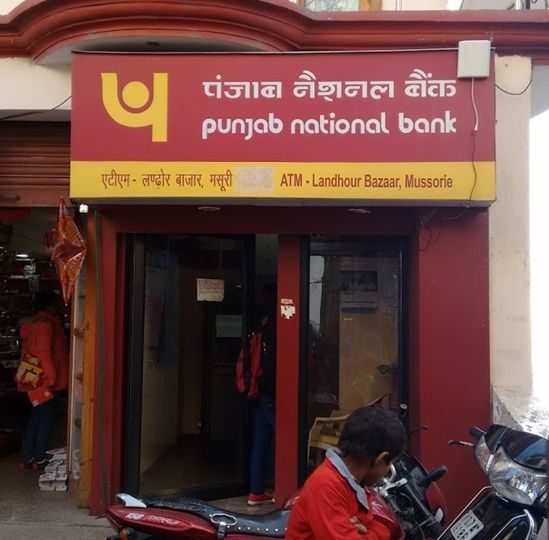 While the finer details of the fraud have not been provided, making it difficult to gauge the exact impact, analysts say it will dent the bank's financials.
While the finer details of the fraud have not been provided, making it difficult to gauge the exact impact, analysts say it will dent the bank's financials.
Shares of Punjab National Bank (PNB) fell almost 10 per cent on Wednesday due to twin negative news.
While the new framework on non-performing assets (NPA) resolution could mean higher loan provisioning for the banking sector, PNB said it had detected fraudulent and unauthorised transactions worth $1,771.69 million (Rs 113.6 billion) at one of its branches in Mumbai.
The bank’s profit and overall asset quality are expected to take a hit even if the fraud alone is considered. Some analysts say if the entire amount attributed to the fraud becomes NPA, as much as 25 per cent of the bank’s estimated net worth of Rs 480 billion could be affected.
The bank, however, said these transactions were contingent in nature. Hence, based on the crystallised amount (one that will become the actual liability), the bank will need to make additional provisions.
The event will also hurt PNB's asset quality in the March 2018 quarter. While the finer details of the fraud have not been provided, making it difficult to gauge the exact impact, analysts say it will dent the bank's financials.
PNB has already reported elevated levels of provisioning (up 80 per cent sequentially and 74 per cent y-o-y) during the October-December 2017 quarter. The new developments will worsen its provisioning pain.
“It is not very clear whether the damage (to the bank) will be equivalent to this (entire amount of fraudulent transactions). If at all there is any damage of this magnitude, then definitely it is a serious issue,” said G Chokkalingam, founder and managing director, Equinomics Research.
R Sreesankar, co-head - equities, Prabhudas Lilladher, said while there was very little information available, it was a big negative for PNB.
“We need to see how much of PNB’s exposure is secured and unsecured, as all unsecured exposure will have to be provided for upfront. If this is classified as fraud, then 100 per cent provisioning is required. This will have an impact on its net worth and will be deducted from the bank’s reserves. If the entire Rs 110 billion is at risk, then it is roughly a fourth of the bank’s book value.”
The impact of this development will not only be seen on PNB but on some other banks as well.
“Though the legality of the case may be decided one to two years down the line, a contingent provision needs to be created by PNB and other banks that may be involved (in this case), based on the crystallised amount, in the March 2018 quarter itself,” said Asutosh Kumar Mishra, analyst at Reliance Securities.
“The crystallised amount will have to be added to the GNPAs (gross non-performing assets),” Mishra added.
Worse, although PNB's stressed assets were very high at Rs 671.29 billionas on December 31, 2017 (14.13 per cent of advances), these were improving over the last three quarters.
The bank is in the process of selling part of its non-core assets, such as holdings in PNB Gilts, PNB Housing Finance and UTI Asset Management (UTI Mutual fund). The government, too, has announced a recapitalisation fund infusion of about Rs 55 billion. These will provide some cushion to the bank, but the bank will need to accelerate some of its asset sale plans.
The street is also hoping for some extra help from the government. “Considering the impact of the new NPA rules, some help from the government to PSBs can be expected in the next financial year,” said Chokkalingam.
Experts are waiting for more clarity on the fraud-related issue. But, considering the potential impact of the two developments on the financials of PNB, the stock is likely to remain under pressure.
Other banks flouted RBI rules, says PNB
In a letter to chiefs of 30 banks, Punjab National Bank has alleged that other banks did not follow due diligence and that there could be involvement of employees of these banks as well in the scam.
The letter, which said the modus operandi was being shared “strictly for exercising necessary caution in the matter”, was also deeply critical of other banks.
It said a junior level branch official unauthorisedly and fraudulently issued letters of undertakings (LoUs) on behalf of some firms belonging to the Nirav Modi group, viz, Solar Exports, Stellar Diamonds, and Diamonds R Us for availing of buyers’ credit from overseas branches of Indian banks.
The firms were maintaining only current accounts with the branch and not enjoying any fund or non-fund based limits.
“None of the transactions was routed through the core banking system (CBS), thus avoiding early detection of fraudulent activity.”
Similar modus operandi were used by the same branch official in companies belonging to Gitanjali Gems promoted by Mehul Choksi -- Gitanjali Gems, Gili, and Nakshatra -- while issuing LoUs/FLCs (foreign letters of credit), the letter said. However, this set of companies enjoyed credit limit with the bank.
“In case of FLCs, it has been found that at the time of issuing FLC for a smaller amount by SWIFT, the transaction was routed through the CBS system but subsequently, amendments were made in these FLCs by substantially enhancing the amount of FLC and transmitted through SWIFT without routing the enhancements through CBS.”
“The said official would subsequently convey via SWIFT the acceptance of bills for the full amount of FLC to the overseas negotiating bank,” the letter said.
LoUs were opened in favour of branches of Indian banks for import of pearls for a period of one year, for which the Reserve Bank of India (RBI) guidelines stipulate a total time period of 90 days from the date of shipment.
“This stipulation was overlooked by overseas branches of Indian banks that are also required to follow the RBI guidelines. There is a clear criminal connivance of group companies of Nirav Modi and Gitanjali Gems with our branch official and also apparently, with officials of overseas branches of Indian banks,” the letter said.
It added: “None of the overseas branches of India based banks has shared with us any document/information made available to them by these Indian companies at the time of availing buyers’ credit from them.”
Subsequently, the buyers’ credit availed against the fraudulent LoU was used either to retire import bills or replenish the maturing buyer’s credit of some other banks.
However, when the official of the bank retired from his service, these companies again approached the branch for availing of LoUs. On being asked to furnish 110 per cent margin, as there was no sanction of any fund or non-fund based limits, the companies insisted they were “undertaking such transactions for the past so many years.”
-- Anup Roy












 © 2025
© 2025